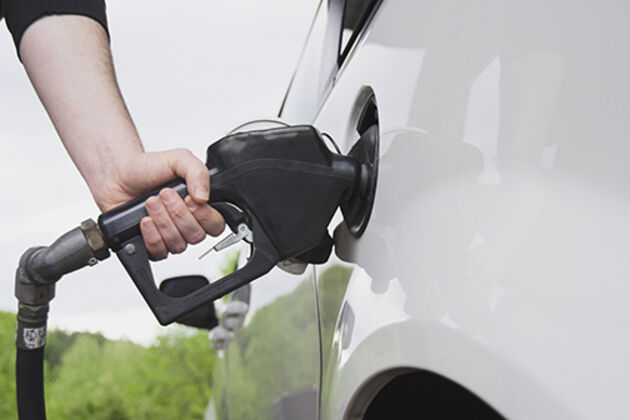
-Submitted photo
By Sen. Mark Schoesler Special to the East Washingtonian OLYMPIA–House Bill 1091, the proposed "high-cost fuel standard" to improve the climate. Was passed on the final day of session, April 25, 2021. During my long drive home to Ritzville from Olympia on Monday, I stopped in Cle Elum for a short break. As I watched other drivers fuel up their vehicles at gas stations, I felt bad for them. Most of them aren't even aware that buying gas or diesel will be much more expensive in the coming years. That's because the Democratic majorities in the Legislature approved two "climate" bills that won't improve the climate but will cause fuel prices to skyrocket for drivers. One of them is House Bill 1091, the proposal creating a low-carbon fuel standard that was justly nicknamed the "high-cost fuel standard" by opponents. The bill aims to "reduce greenhouse gas emissions by reducing the carbon intensity of transportation fuel." The problem is, passing such a bill for a state like Washington, which currently has such a small carbon footprint in the world, is hardly going to make any difference. An analysis by the Puget Sound Clean Air Agency found a low-carbon fuel standard similar to the one created by HB 1091 would raise gas prices by 57 cents a gallon and diesel prices by 63 cents a gallon. On the final day of our session, a compromise version of the bill (that was essentially decided by two Senate Democrats, and two House Democrats) was passed by the Senate 26-23 and by the House 54-43. The other climate measure, Senate Bill 5126, is known by proponents as the "cap-and-trade" bill but is more aptly called the "cap-and-tax" bill. SB 5126 was approved last weekend by the Senate 27-22 and by the House 54-43. A recent study, from NERA Economic Consulting, says this bill would increase the cost of gasoline in our state by $1.81 a gallon by 2024 and $2.41 a gallon by 2030. The study also finds the bill would increase diesel costs by $2.07 a gallon by 2024 and $2.75 by 2030. If the extreme fuel-cost hikes tied to these two bills weren't bad enough, the climate measures – pushed for years by Governor Inslee – create complicated programs that will require manufacturers and other businesses to purchase "credits" and "allowances" to offset carbon emissions. The expected cost increases will be in addition to the current state and federal gas taxes of 67.8 cents a gallon, already the fourth-highest in the country. While the Legislature did not pass an increase in the state gas tax, there is a strong possibility that a special session might be called for this fall for the purpose of passing a transportation-funding package that would include a state gas-tax hike of at least 5 cents a gallon. If that happens, the nightmare that drivers are about to face whenever they pay at the pump will become even worse.